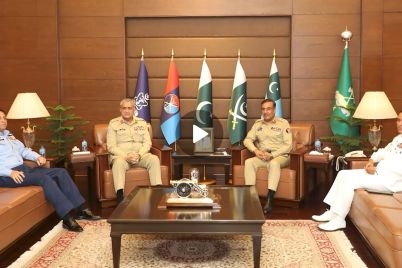Islamic terrorism is the natural outcome of Pakistan’s strategy of using jihad as an instrument of its defense policy. Unless there is a paradigm change in the strategic thinking of Pakistani military, Islamic terrorism will keep causing unprecedented deaths and destruction in the years to come.
Arif Jamal
The suicide attack on a Shia Mosque in Peshawar on Friday was the deadliest attack since the Afghan Taliban came into power, killing at least 57 Shia worshipper and injuring more than 200 worshippers. The Islamic State Khorasan (ISK) claimed the responsibility. The peace in the region has been shattered since the Afghan Taliban captured Kabul with the help of the Pakistani military. As the Shia worshippers prepared to say their Friday prayers, the ISK suicide bomber fired half a dozen shots at two policemen who tried to stop him – killing one of them and injuring the other. The ISK terrorist wore black clothes to pass as one of the Shia worshippers. As he neared the minber, he exploded five to six kilograms of explosives wrapped around his body. The security situation in the neighborhood had become precarious since terrorists attacked a house in the same neighborhood with hand grenades a few days ago.
The return of the Taliban in Afghanistan has reversed Pakistan’s successes in neutralizing the bad Taliban. Pakistan’s strategy in defeating terrorists was flawed from the start as it fought the bad Taliban while it continued to patronize the good Taliban. The Pakistani military considers the terrorists who target them bad Taliban while others are good Taliban. As Karzai/Ashraf Ghani governments in Afghanistan stabilized with the passage of time, the Taliban of all hues found it more and more difficult to operate out of Afghanistan. As a result, they went into hibernation and a fragile peace returned to both Afghanistan and Pakistan. The return of the Taliban in Kabul was the day they had been waiting for. After capturing Kabul, the Afghan Taliban released hundreds of Tehreek-e-Taliban Pakistan (TTP) terrorists from their jails. Many of these TTP terrorists immediately headed to Pakistan where they were welcomed by their fellow TTP terrorists. Others set up their camps in Afghanistan to carry out attacks inside Pakistan. Journalist Saleem Safi told the TV show Aaj Shahzeb Khanda kay saath on Friday that thousands of new Pakistani TTP mujahideen have moved to Afghanistan where they have found sanctuaries.
Safi described the TTP as a “franchise” of the Afghan Taliban. He said they have the same ideology, the same strategies and the same amir of the Afghan Taliban. Since the fall of Kabul to Afghan Taliban in August 2021, The TTP has organized itself in Khyber Pakhtunkhwa and appointed amirs and organizers at divisional and district levels. Since the Taliban came into power in Kabul, Saleem Safi says that the TTP has been extorting money from every person with money in Bannu, DI Khan, Swat and Peshawar. He also told Shahzeb Khanzada that the Afghan Taliban are not allowing them to carry out big terrorist operations in Pakistan. However, the TTP is carrying out small operations in Pakistan. Every day they target Pakistani military forces including the police in different parts of Khyber Pakhtunkhwa. Interestingly, what Safi told Shahzeb Khanzada is the opposite of what the government and the ISPR-certified defense experts have been trumpeting for years. They still insist that there is no link between the Afghan Taliban and the TTP although the TTP never hid their links with the Afghan Taliban. According to Safi, the Afghan Taliban have brought ISK under control and the ISK is not able to effectively operate inside Afghanistan. Consequently, ISK will now use Afghanistan as a springboard to carry out its terrorist activities mostly inside Pakistan.
The Friday suicide attack on the Shia Mosque shows that the Pakistani government’s decision to hold talks with the TTP last year and release their terrorists helped them reorganize. Although the TTP continues to target Pakistani soldiers and police, Pakistan continues releasing the TTP prisoners. The ISK attack on the Shia mosque will encourage the TTP also to go after the common enemy – the Shias – in the same deadly way. It is sad that the Shia religious and political leaders stop short of blaming the Deobandi terrorists and are not ready to name the forces behind the Deobandi terrorists. This makes the Shia leaders equally complicit in the anti-Shia terrorist crimes.
The Friday terrorist attack is the beginning of a new wave of terrorism that is likely to continue for several years to come as Pakistan is reluctant to fight the Islamist terrorists. Shias will be the prime target of both ISK and TTP as they consider them kafirs. If the killings of Pakistani soldiers fail to make the Pakistani military fight the Islamic terrorists, Shia deaths are highly unlikely to change anything. Islamic terrorism is the natural outcome of Pakistan’s strategy of using jihad as an instrument of its defense policy. Unless there is a paradigm change in the strategic thinking of Pakistani military, Islamic terrorism will keep causing unprecedented deaths and destruction in the years to come. Follow us on Twitter @AlterVoices



